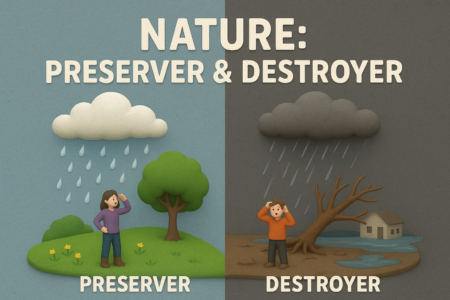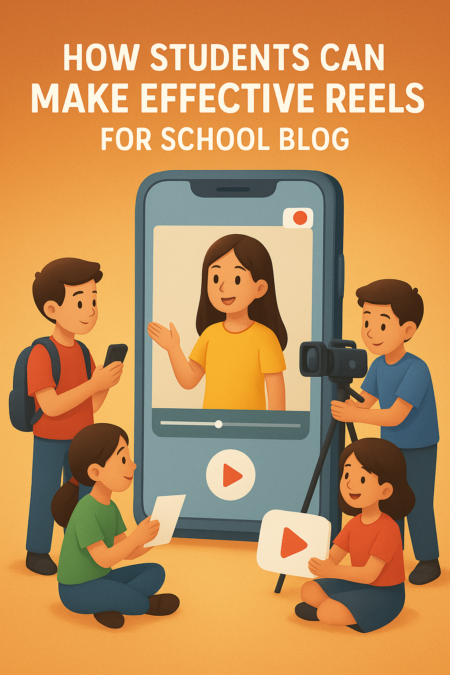Introduction
Picture exam day nerves. But instead of letting them overwhelm, you use a secret weapon: emotional intelligence. It’s your guide through school life’s twists and turns, not just understanding your own feelings but others’ too. It’s key to acing tests, making friends, and excelling in group work. In this post, we’ll explore how emotional intelligence, powered by self-awareness and empathy, shapes your journey, unlocking doors to success and personal growth. Welcome to the world of emotional intelligence—where every emotion propels you forward.
Exploring Emotional Intelligence
Let’s talk about emotional intelligence—it’s like having superpowers for handling feelings, both yours and others’. There’s emotional agility, helping you bounce back when things don’t go your way. Adaptability is key for rolling with life’s changes, while resilience helps you bounce back stronger after setbacks. Now, think about everyday school situations. In group projects, emotional intelligence helps you listen to others, find common ground, and work together. And in extracurriculars, it’s about understanding teammates’ feelings, supporting each other, and celebrating victories. Emotional intelligence isn’t just a fancy term—it’s your secret weapon for school success!
The Power of Self-Discovery
Explore the realm of self-awareness—it’s like uncovering the secrets of your own being! Imagine it as a journey where you delve into your emotions, strengths, and weaknesses. Take a moment to reflect on your feelings and abilities. Then, set goals to chart your path forward. Understanding yourself empowers you to make smart choices and manage your time wisely. With self-awareness, you can pursue your passions with purpose, whether in academics, community involvement, or personal interests. Let’s embrace self-discovery and see how it transforms our school experience—and our lives!
Empathy: The Heart of Connection
Understanding Empathy:
Empathy isn’t just a concept—it’s our guiding light in understanding others’ emotions. It flavors our relationships, helping us navigate conflicts with grace. In our school community, empathy forms bonds that transcend differences.
Fostering Empathy in Our Community:
In our school, we see empathy in action every day. From students lending a helping hand to teachers offering support, empathy strengthens our community. It’s not just a trait; it’s our collective force, enriching our bonds with warmth and understanding. Let’s celebrate empathy as the soulful melody of connection, guiding us to a future filled with kindness.
Unveiling the Benefits
- Boosted Academic Performance:
When you understand your emotions and how to manage them, you can focus better on your studies. Research shows that students with high emotional intelligence tend to perform better in school because they can handle stress, stay motivated, and work well with others. - Improved Mental Well-being:
Emotional intelligence isn’t just about school—it’s about your overall happiness and well-being too. By being aware of your emotions and knowing how to express them in a healthy way, you can reduce stress, anxiety, and even depression. It’s like having a built-in mental health toolkit! - Success in Life:
Believe it or not, emotional intelligence can set you up for success in the long run. Studies have found that people with high emotional intelligence are more likely to graduate from school, land their dream jobs, and advance in their careers. Employers love candidates who can communicate effectively, work well in teams, and handle pressure—all skills that emotional intelligence helps you develop. - Greater Resilience:
Life is full of ups and downs, but emotional intelligence gives you the strength to bounce back from setbacks. When you’re emotionally intelligent, you’re better equipped to handle challenges, adapt to change, and keep pushing forward—even when things get tough. - Stronger Interpersonal Skills:
Whether you’re collaborating on a group project or networking at a job fair, strong interpersonal skills are key to success. Emotional intelligence helps you build meaningful relationships, communicate effectively, and resolve conflicts with ease. It’s like having a secret weapon for making friends and impressing future employers!
Practical Strategies for Daily Application
Developing Self-Awareness:
Start by keeping a feelings journal. Write down your emotions each day and reflect on what triggered them. This will help you better understand your feelings and how they affect your actions.
Practice mindfulness techniques, like deep breathing or meditation, to stay present and focused. Take a few minutes each day to quiet your mind and tune into your thoughts and emotions.
Engage in regular self-reflection. Set aside time to think about your strengths, weaknesses, and areas for growth. What makes you tick? What challenges do you face? Self-reflection helps you become more aware of yourself and your needs.
Cultivating Empathy:
Volunteer in your community. Helping others is a great way to practice empathy and gain a better understanding of different perspectives and experiences.
Participate in group discussions where you can listen to others’ viewpoints and share your own. Take the time to truly understand where others are coming from, even if you don’t agree with them.
Practice active listening. When someone is talking to you, give them your full attention. Put away distractions, make eye contact, and show that you’re genuinely interested in what they have to say. Empathy starts with listening.
Managing Emotions Effectively:
Try deep breathing exercises to calm yourself down when you’re feeling stressed or overwhelmed. Take slow, deep breaths in through your nose and out through your mouth to relax your body and mind.
Practice progressive muscle relaxation by tensing and then slowly releasing each muscle group in your body. Start with your toes and work your way up to your head, focusing on releasing tension and promoting relaxation.
Use positive self-talk to challenge negative thoughts and beliefs. Instead of beating yourself up over mistakes, remind yourself of your strengths and capabilities. Replace negative thoughts with positive affirmations to boost your confidence and resilience.
Building a Supportive Network:
Surround yourself with people who lift you up and support your emotional growth. Whether it’s friends, family, or teachers, having a supportive network can provide encouragement, feedback, and guidance on your emotional intelligence journey.
Navigating Emotional Terrain
- Acknowledging Challenges:
- Recognize that challenges are inevitable on the path to enhancing emotional intelligence.
- Understand that peer pressure, academic stress, and other hurdles are normal parts of student life.
- Remind yourself that facing challenges is a natural part of growth and development.
- Practical Strategies and Coping Mechanisms:
- Practice mindfulness techniques to stay grounded and present amidst daily stressors.
- Set boundaries to protect your emotional well-being and prioritize what’s important to you.
- Seek support from trusted mentors, teachers, or counselors when feeling overwhelmed.
- Embracing Setbacks as Learning Opportunities:
- Approach setbacks with patience and self-compassion, recognizing them as opportunities for growth.
- Use setbacks as learning experiences to deepen your understanding of yourself and others.
- Embrace setbacks as valuable stepping stones on your journey to cultivating emotional intelligence.
Conclusion
In conclusion, emotional intelligence, self-awareness, and empathy are essential for success. As you navigate your journey, remember challenges are opportunities for growth and connections are key. With resilience and compassion, shape your path with optimism, knowing you possess the strength to thrive. Here’s to a future filled with growth, connection, and endless possibilities.







